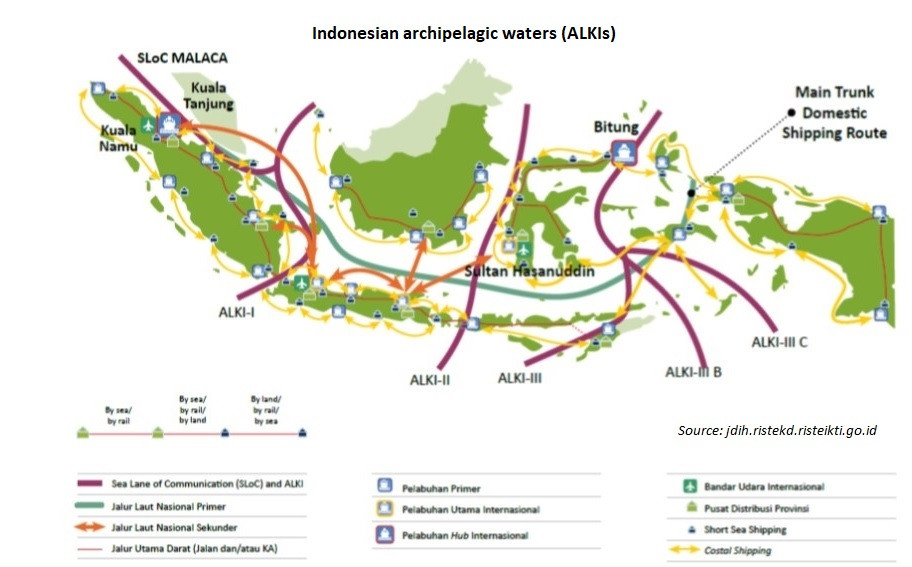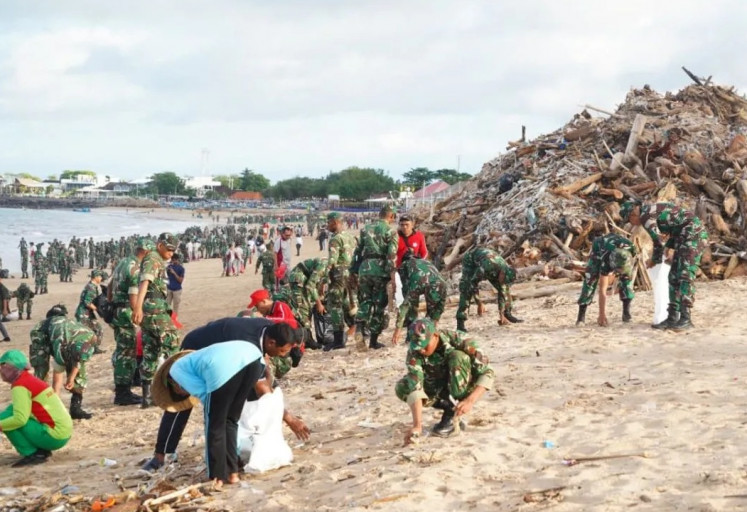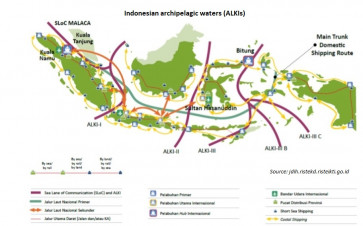Popular Reads
Top Results
Can't find what you're looking for?
View all search resultsPopular Reads
Top Results
Can't find what you're looking for?
View all search resultsDoes Indonesia have excessive maritime claim beyond UNCLOS?
Indonesia and the US seem to have different interpretations of the implementation of archipelagic state regimes.
Change text size
Gift Premium Articles
to Anyone
E
arly this month, the United States Department of Defense (DoD) released its report to the Congress on the Annual Freedom of Navigation for the fiscal year of 2021. Even though the US Freedom of Navigation (FON) program in Asia mainly focuses on China and the South China Sea, some Southeast Asian countries have been targeted as well, including Indonesia and in particular due to its archipelagic waters.
The issue of navigational rights and freedoms in Indonesia mainly relates to the regime of archipelagic waters. Indonesia and the US seem to have different interpretations of the implementation of archipelagic state regimes.
However, it should be emphasized that the US does not question or challenge Indonesia’s status as an archipelagic state or its sovereignty over its archipelagic waters. The US' concerns are meant to ensure to what extend foreign vessels are allowed to exercise the navigational rights to which they are entitled under the United Nations Convention on the Law of the Sea (UNCLOS).
This is the first Freedom of Navigation report under President Joe Biden, but it is not the first time the US has included Indonesia in its list under its FON program. During former president Donald Trump's administration alone, the US released two Freedom of Navigation reports; in 2017 and 2018. In both reports, Indonesia was listed as one of the countries that laid excessive maritime claims and, therefore, had to be challenged.
Indeed, Indonesia and the US have a long history of different interpretations regarding archipelagic state regimes. One year after Indonesia enacted a government regulation on archipelagic sea lanes (ASL) in August 2003, the US officially sent a diplomatic note protesting the regulation. The protest note stated that the Indonesian submission to the International Maritime Organization (IMO) was only a “partial designation” so that “the right of the ships and aircraft of all states to exercise archipelagic sea lanes passage continues on all normal routes used for international navigation through other parts of the Indonesian archipelago, as provided in article 53(12) of UNCLOS”.
In July 2003, the USS Carl Vinson and five F-18s conducted a maneuver near Bawean Island in the Java Sea outside of the designated ASLs. The US F-18 Hornet fighter jets went into attack mode and locked their missiles onto two Indonesian Air Force (TNI-AU) F-16 fighters. The Indonesian authorities observed that the US planes were guarding an aircraft carrier, two frigates and a tanker.
After noticing the US violation of Indonesian sovereign territory, the two TNI-AU F-16 fighter jets intercepted the US planes. After a long communication between the two forces, the incident was resolved and the US jets left Indonesian territory.



















